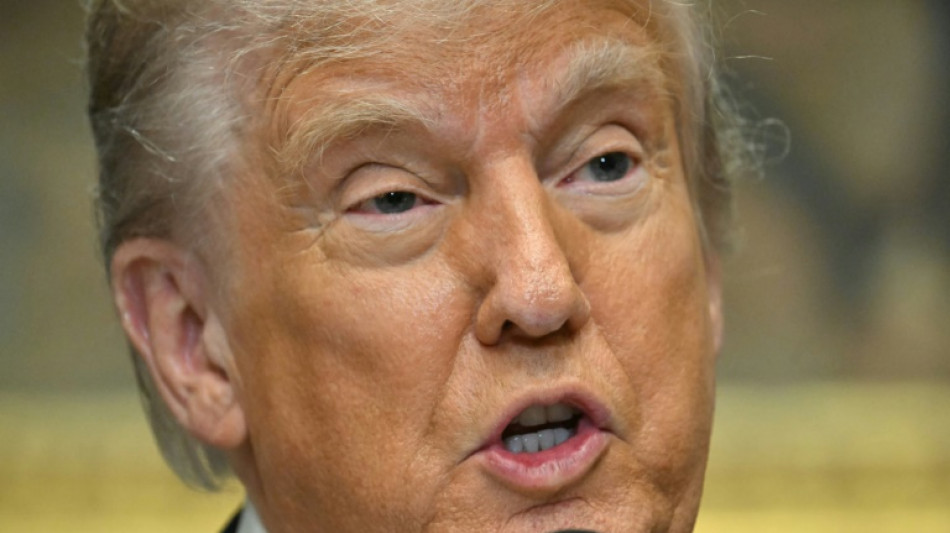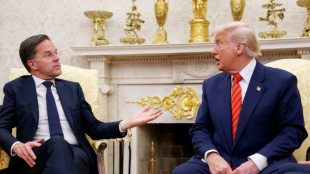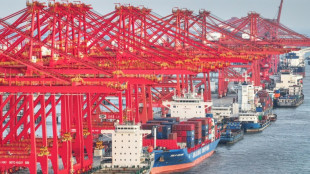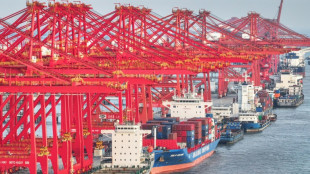

'Panic and paralysis': US firms fret despite China tariff reprieve
President Donald Trump's rollercoaster tariff row with Beijing has wreaked havoc on US companies that rely on Chinese manufacturing, with a temporary de-escalation only expected to partially calm the storm, analysts and business owners say.
"The only option is to try to keep your head above water and be tossed by the waves, or to go out of business," said Anna Barker, whose Mississippi-based firm Glo sells luminous toys designed in the United States and made in China.
She told AFP that the 90-day reprieve beginning Wednesday is just a mere "blip on the radar." Placing orders, manufacturing products and shipping them to the United States takes much longer.
Trump's escalating trade war since his return to office saw US duties on Chinese goods -- including toys -- reach a whopping 145 percent, while Beijing's countermeasures hit 125 percent.
The world's two biggest economies however agreed at talks last weekend in Switzerland to temporarily lower the levies, bringing US tariffs down to 30 percent and China's corresponding duties to 10 percent.
While cautiously optimistic about the ongoing negotiations, Barker warned the 30 percent rate remains "massive for a small company."
Trump has argued that companies will enjoy zero tariffs if they manufacture in the United States, overlooking costs for any machinery or raw materials that would still need to be imported.
"We're an American company," Barker said. "Our biggest priority, if it was just up to us, will always be the US market. But it simply can't be right now."
To stay afloat, she is looking abroad for growth.
- 'Clogged pipeline' -
The pause "may temporarily help unstick" an effective trade embargo since April 9, when steep levies forced many firms to halt imports, said Steve Lamar, president of the American Apparel & Footwear Association (AAFA).
He warned, however, that the residual 30 percent tariff, stacking on duties from past administrations, will "make for an expensive back to school and holiday season."
"The tariffs are still so large that you can't help but pass them along," said KPMG chief economist Diane Swonk.
This means producers, retailers and consumers could all bear some burden, with small businesses hit particularly hard due to their narrower margins.
Freight rates could also surge due to shipping disruptions from the tariffs.
"There's a lot of inventory piling up in factories in China that now need to hit the water," said Josh Staph, chief executive of Ohio-based Duncan Toys Company.
Barker said her company was hurrying to join an "already very clogged pipeline of people racing to shipping ports."
Policy shifts have "triggered both panic and paralysis" among companies, said Swonk.
"Every time they see a window like what we have for 90 days now, they've got to rush," she said. "In that rush, you have a self-fulfilling prophecy that shipping costs are going to go up."
- 'Depressed investment' -
The AAFA's Lamar has called for Trump to strike lasting deals with China and other countries to give businesses more long term certainty.
Without a permanent tariff rollback, the United States will likely continue seeing "depressed investment," said Philip Luck, economics program director at the Center for Strategic and International Studies.
"Firms remain in limbo as they try to plan long-term sourcing and investment decisions," he added.
For Barker's start-up Glo, born of a school project in Mississippi where she and her business partner were college students, the answer for now may be expanding outside the United States.
This means shipping Chinese-made products to countries in Europe or elsewhere, even as it remains based in the southern state with around 30 staff.
"As contrary as it might seem," Barker said, "by shifting our focus international, that is to maintain American jobs."
J.Ammar--al-Hayat




